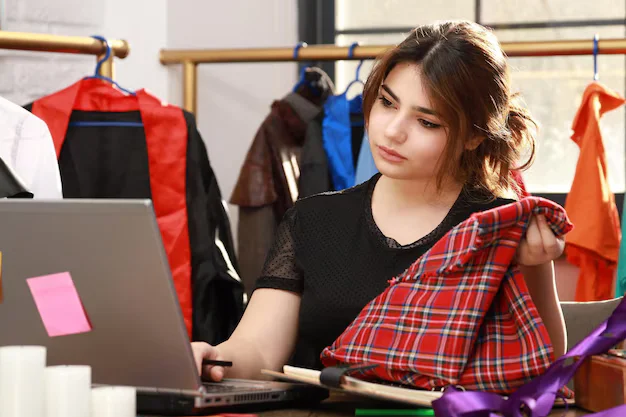Choosing the right wholesaler is a pivotal decision for retailers looking to succeed in the competitive women’s fashion market. As consumer trends shift rapidly, having a reliable source for Bulk women’s clothing for retailers is essential to maintain profitability and customer satisfaction. This guide will walk you through the critical factors to consider when selecting a wholesaler to ensure you make the best choice for your business.
1. Your Target Market
Before diving into the search for a wholesaler, it’s crucial to define your target audience. Are you catering to young professionals, trend-savvy teens, or mature women seeking timeless pieces? Each demographic has unique needs that will influence your choice of products.
Wholesalers often specialize in specific niches. For example, if you’re targeting high-fashion trends, look for a supplier that stays updated with the latest styles. Alternatively, if your audience prefers sustainable clothing, prioritize wholesalers offering eco-friendly options.
2. Wholesaler’s Product Range
Your wholesaler’s inventory must align with your store’s identity. Explore their catalog to ensure they offer the styles, sizes, and materials that suit your target customers. Consider the following:
- Variety: Does the wholesaler provide a diverse selection, including casual wear, office attire, and evening dresses?
- Size Range: Ensure inclusivity by offering sizes for all body types.
- Quality: Request samples to assess the fabric, stitching, and overall durability of their products.
For example, Paris Fashion Shops provides a vast array of bulk women’s clothing for retailers, making it a valuable resource for businesses of all kinds.
3. Research Wholesaler Reputation
Reputation is everything in the wholesale business. Conduct thorough research to ensure your potential supplier is reliable and trustworthy. Start by:
- Reading Reviews: Look for testimonials from other retailers who have worked with the wholesaler.
- Checking Certifications: Verify if the supplier adheres to industry standards and ethical practices.
- Testing Customer Support: Reach out to assess their responsiveness and willingness to address your concerns.
Wholesalers with a strong reputation are more likely to deliver consistent quality and meet your business needs efficiently.
4. Analyze Pricing and Discounts
Profit margins are critical to the success of any retail operation. Compare the pricing structures of different wholesalers to ensure you get the best value for your money. Consider the following factors:
- Bulk Discounts: Does the wholesaler offer tiered pricing for larger orders?
- Hidden Costs: Watch out for additional charges like shipping fees or minimum order requirements.
- Return Policies: Understand the terms for returns or exchanges in case of defective goods.
Affordable pricing without compromising quality is key, and wholesalers like Paris Fashion Shops are known for providing competitive rates for bulk women’s clothing.
5. Check for Trend Adaptability
The fashion industry is fast-paced, with trends changing seasonally or even monthly. Your wholesaler must be agile enough to adapt to these shifts. Collaborate with suppliers who:
- Regularly update their inventory.
- Stay ahead of seasonal trends.
- Offer exclusive designs that help your store stand out.
This ensures that your store remains relevant and appealing to fashion-conscious customers.
6. Assess Logistics and Delivery Options
Efficient logistics can make or break your operations. When choosing a wholesaler, ensure they provide reliable and timely delivery services. Key aspects to evaluate include:
- Shipping Time: How quickly can they process and ship your orders?
- Tracking Capabilities: Do they provide real-time tracking for shipments?
- International Shipping: If your business operates globally, check if the wholesaler can deliver to your location.
Reliable logistics partners minimize delays and help maintain customer satisfaction.
7. Minimum Order Quantities
Some wholesalers require retailers to purchase large quantities to access discounted rates. While this may benefit larger stores, it can strain smaller businesses. Choose a wholesaler with flexible minimum order requirements that align with your budget and storage capacity.
8. Inspect Sustainability Practices
Modern consumers are increasingly concerned about ethical sourcing and sustainability in fashion. Partnering with a wholesaler committed to fair labor practices and eco-friendly materials can enhance your brand image and appeal to conscious shoppers.
Look for certifications or evidence that the supplier adheres to ethical standards, such as fair wages for workers and environmentally friendly production processes.
9. Build Long-Term Relationships
Establishing a strong relationship with your wholesaler can result in better deals, priority service, and a deeper understanding of your business needs. Communicate regularly, provide feedback, and work collaboratively to ensure mutual growth.
Conclusion
Choosing the right wholesaler is a foundational step in building a successful women’s clothing retail business. By prioritizing factors such as product quality, pricing, trend adaptability, and ethical practices, you can find a supplier who aligns with your brand values and customer expectations.
For retailers looking to source bulk women’s clothing for retailers, platforms like Paris Fashion Shops provide a comprehensive range of options to cater to diverse market needs. Take the time to research, evaluate, and build partnerships to set your business up for long-term success.







